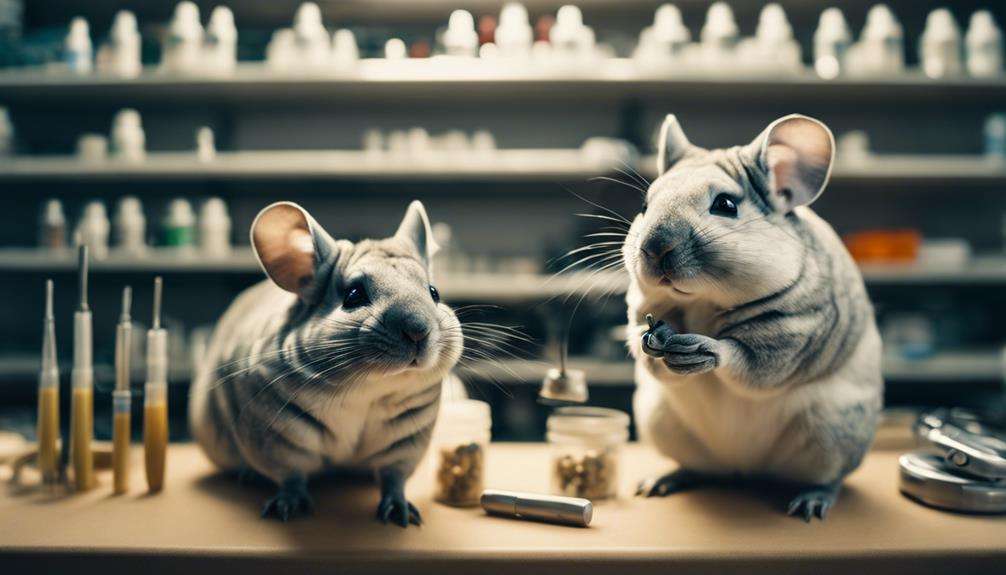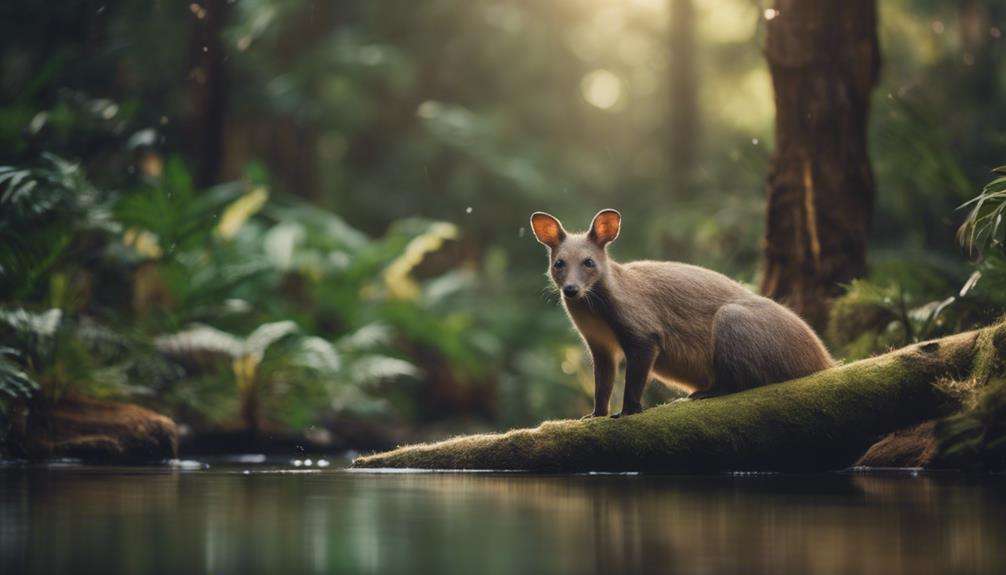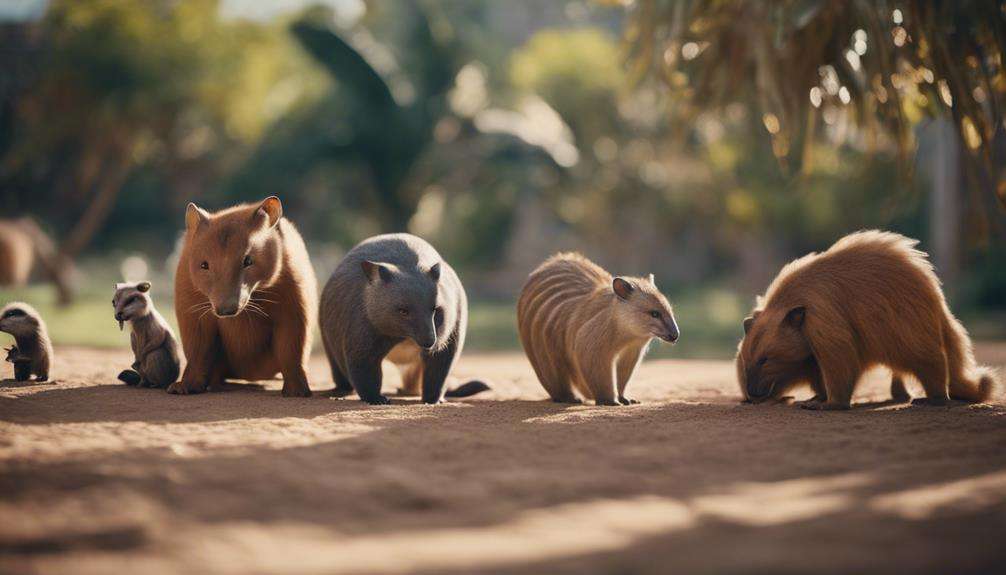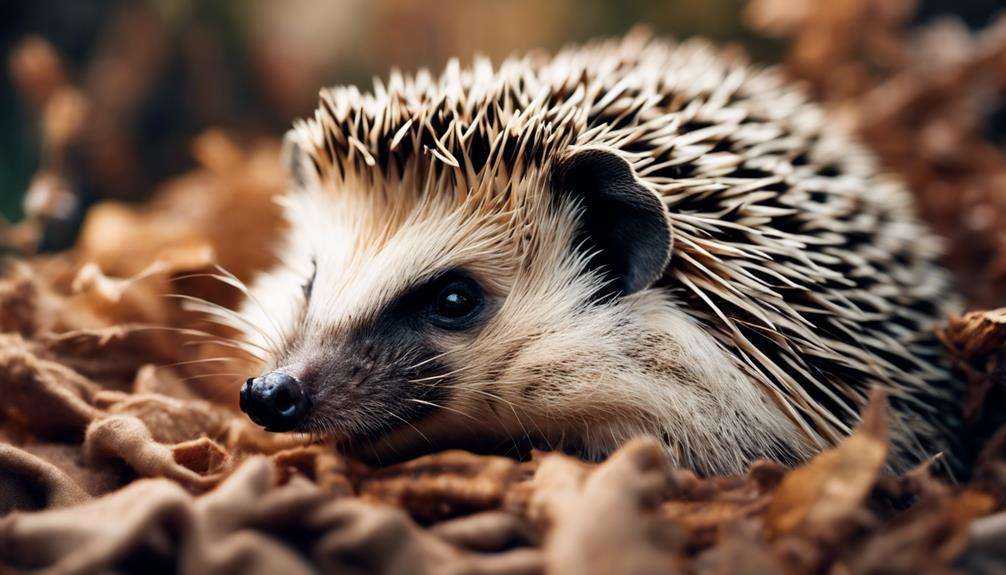Caring for exotic mammals demands a nuanced approach, considering their unique needs and requirements. However, when it comes to ensuring the well-being of these unusual pets, attention to detail is paramount.
From specialized diets to creating suitable habitats, every aspect of their care plays a crucial role. But what about the lesser-known factors that contribute to their overall health and happiness?
Let's uncover the hidden essentials that will truly make a difference in the lives of these extraordinary companions.
Key Takeaways
- Seek advice from exotic animal specialists for unique care requirements and housing needs.
- Provide a balanced diet tailored to mimic natural habitats and meet nutritional needs.
- Create spacious, enriched environments with suitable bedding and hiding spots.
- Prioritize regular veterinary care, monitor behaviors, and ensure specialized nutrition for optimal health.
Exotic Mammal Selection Considerations
When selecting an exotic mammal as a pet, carefully consider their unique care requirements and housing needs. Exotic pets need specialized care that goes beyond traditional domestic animals. Consulting an exotic animal specialist is advisable to understand the specific needs of these small mammals.
Each exotic pet requires a tailored environment that mimics their natural habitat to ensure their well-being. Understanding the nutritional needs of your exotic animal is crucial for their overall health. These pets often have specific dietary preferences that must be met to prevent nutritional deficiencies.
Additionally, consider the social behaviors of the exotic mammal you're interested in. Some species require companionship, while others are solitary creatures. It's essential to research and comprehend the social needs of the exotic pet you're considering bringing into your home.
Proper Nutrition for Exotic Mammals
To ensure the optimal health and well-being of your exotic mammal, understanding and providing proper nutrition is paramount. When it comes to exotic pet care, animals like exotic mammals have special care requirements, particularly in maintaining an appropriate diet tailored to their specific nutritional needs.
Here are some key points to consider:
- Balanced Diet: Exotic mammals require a balanced diet to prevent health issues and ensure their well-being. This includes a mix of proteins, carbohydrates, fats, vitamins, and minerals.
- Consultation: Different exotic mammals have diverse dietary preferences and nutritional needs. It's crucial to consult with an exotic animal specialist to determine the most suitable diet for your specific exotic mammal.
- Essential Nutrients: Providing a diverse diet that includes essential nutrients is vital for the overall health and longevity of exotic mammals. Make sure their diet covers all the necessary nutrients they require.
- Research: Before making any dietary decisions, research and understand the specific nutritional requirements of your exotic mammal. This will help you provide the best diet possible for their well-being.
Housing Requirements for Exotic Mammals

For the optimal well-being of your exotic mammal, ensuring their housing meets specific requirements is essential.
Exotic mammals like chinchillas and ferrets need spacious, escape-proof habitats to guarantee their safety. These habitats should include appropriate bedding materials that mimic their natural environment and provide comfort.
Proper ventilation in the enclosures is crucial to maintain a healthy living environment for these unique pets. Hiding spots and enrichment activities should be incorporated into the habitat to provide mental stimulation and enhance their well-being.
It's important to control the temperature and humidity levels in the housing for exotic mammals to match their specific needs for optimal health. By providing a suitable environment with these housing requirements, you can ensure that your exotic mammal thrives and leads a happy, healthy life.
Enrichment and Mental Stimulation for Exotic Mammals
Optimizing the mental well-being of your exotic mammal involves providing enriching activities that cater to their natural behaviors and cognitive engagement. To ensure your pet's mental stimulation, consider the following:
- Enrichment Activities: Incorporate foraging puzzles and hiding treats to stimulate both their minds and bodies.
- Rotating Toys and Climbing Structures: Prevent boredom by regularly changing toys, adding tunnels, and climbing structures that encourage natural behaviors.
- Social Interaction: Enhance mental stimulation by providing opportunities for social interaction with owners or compatible pets.
- Sensory Experience: Enrich the environment with novel scents, textures, and sounds to engage their senses fully.
Health Care Essentials for Exotic Mammals

What important health care essentials should you prioritize for your exotic mammal to ensure their well-being and early illness detection?
Regular veterinary care is paramount for exotic mammals to detect diseases early and plan treatments promptly. Monitoring changes in appetite, stool, urine, activity, and appearance is crucial in identifying signs of illness.
Providing specialized nutrition that meets the species-specific dietary requirements of your exotic mammal is essential for their overall health. Scheduling annual wellness exams is vital to prevent illnesses and ensure the well-being of your unique pet.
Pay close attention to subtle behavior changes, as they can indicate sickness, underscoring the importance of vigilant observation and immediate veterinary care. By incorporating specialized care, annual check-ups, and early treatment planning into your exotic mammal's healthcare routine, you can help them thrive and live a long, healthy life.
Frequently Asked Questions
Why Are Exotic Pets Hard to Take Care Of?
Taking care of exotic pets poses unique challenges due to their special requirements, behavior issues, health concerns, training difficulties, legal restrictions, environmental needs, socialization problems, dietary restrictions, and space constraints. Meeting these demands demands expertise and dedication.
What Are the Problems With Exotic Animals as Pets?
Legal implications arise from owning exotic pets due to complex care needs, health risks like zoonotic diseases, unpredictable behaviors, and specialized diets. Lack of expertise, space, and socialization challenges can lead to improper care and environmental impact.
What Exotic Animal Is Easy to Take Care Of?
Taking care of exotic animals can be a breeze if you choose the right one. Sugar gliders are a top pick for ease with their sociable nature and low maintenance needs. Hedgehogs and chinchillas also make great, manageable pets.
Are Exotic Pets High Maintenance?
Exotic pets are often high maintenance due to their unique needs. They require a significant time commitment and specialized care that can be costly. Training, health concerns, bonding techniques, grooming, and enrichment activities are essential for their well-being.
Conclusion
To care for exotic mammals, you must consider their unique needs, provide proper nutrition, create suitable habitats, and offer mental stimulation.
Regular veterinary check-ups are essential for maintaining their health.
By investing time and resources into their care, you can ensure a fulfilling companionship with these unusual pets.
Remember, dedication and knowledge are key to giving your exotic mammals the best quality of life.






